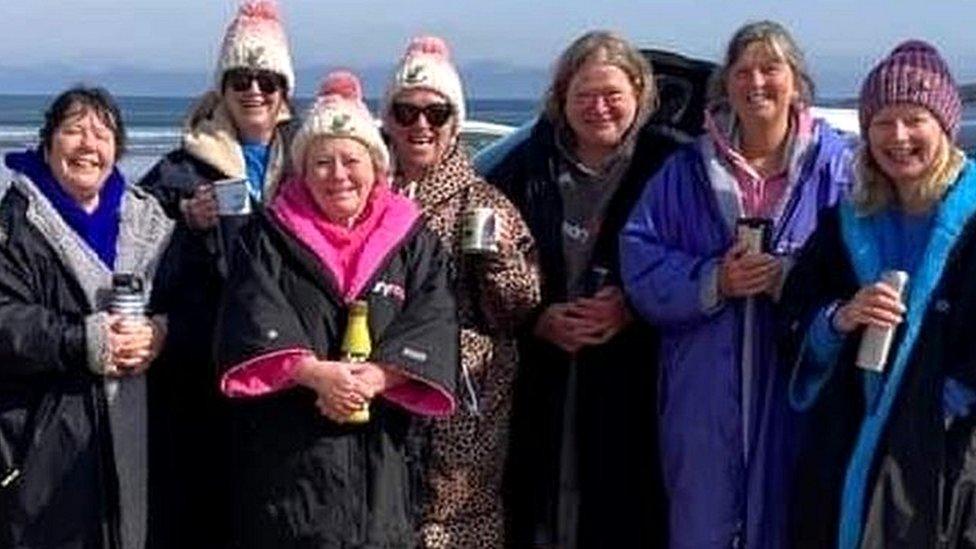Wild swimming could return to Lough Neagh this winter
- Published
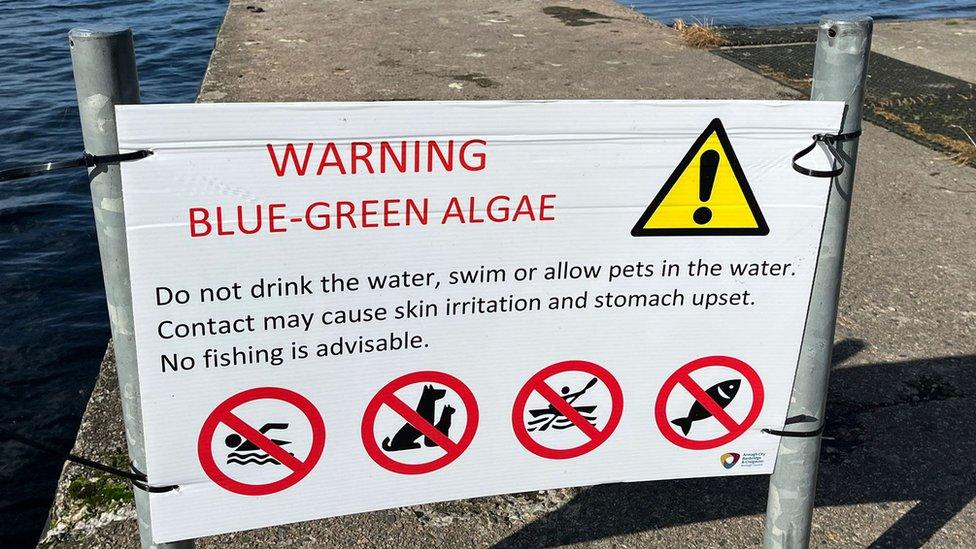
Bathing bans have been put in place in areas around the lough
Swimming could resume in Lough Neagh in a matter of months, but only if there are suitable weather conditions.
Signs warning against swimming in the lough were put up over the summer due to blue-green algae in the water.
Regular testing is taking place to see when it may be safe again for people to enter the water.
Lough Neagh is popular for water sports, including open-water swimming groups with some people bathing on a daily basis, all year round.
It is the largest freshwater lake in the UK, supplying half of Belfast's drinking water and 40% of Northern Ireland's overall.
In spite of recent events, the authorities insist the drinking water is still safe.
Scientists at the Department of Agriculture, Environment and Rural Affairs (Daera) are monitoring the lough.
Waiting game
Claire Vincent, deputy director at the marine and fisheries division, says the weather will dictate how soon swimming might be permissible again.
Asked if it could be months or years before a resumption of swimming, she said: "I'm hoping that they'll be able to get back in the lough in months, but there's a bit of a question mark over that, because it just depends how mild an autumn we have.

Falling temperatures in autumn will dictate how soon wild swimming could return to the lough
"As the light drops in autumn, then we expect to see less [algal] blooms but obviously we've just come out of a really warm weekend and if those temperatures stay up, then we may still be getting algal blooms and algal scums.
"Those are the things it depends on - temperature and light, and that's why the department is keeping a close eye on this and why we are continuing to monitor even though we're outside the bathing season."
Signs have been put up around the lough with the message: "Do not drink the water, swim or allow pets in the water. Contact may cause skin irritation and stomach upset".
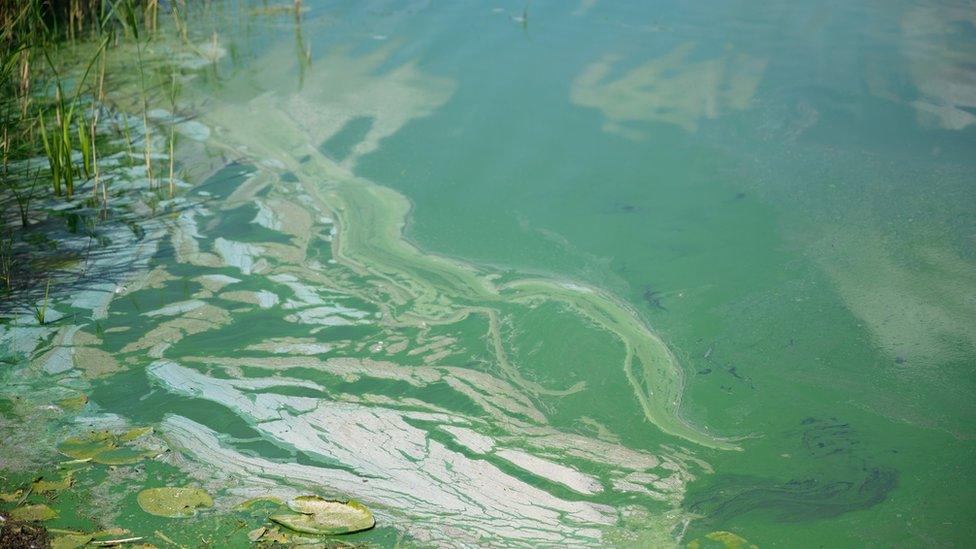
Blue-green algae is toxic to animals and can cause illness in humans (file image)
One of the open-water swimming groups affected is the Lough Neagh Monster Dunkers, which has more than 1,000 members in a private Facebook group.
It includes occasional swimmers, as well as many who swim on a daily or weekly basis.
Chris Judge, who founded the group, said: "We all come from different towns, like Lurgan, Portadown, Moira, Banbridge and some from Belfast.
"What's happened at the lough has had a massive impact on us."
The group has been forced to arrange swims in other places, including Moira Lakes which is 10 miles away from their usual swimming spot at Lough Neagh.
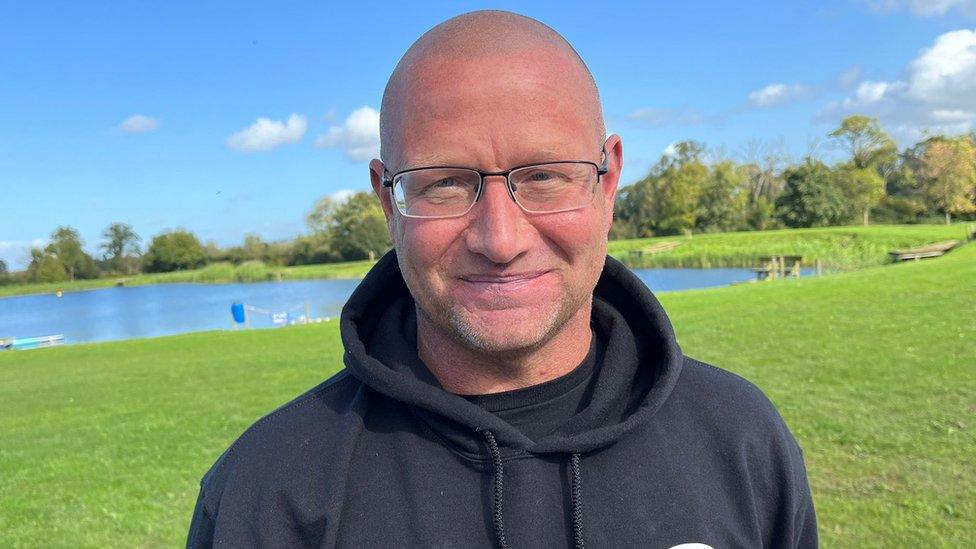
Monster Dunker members have been travelling across Northern Ireland due to the algal blooms, Chris Judge says
In spite of the inconvenience, Mr Judge said the group remains committed to swimming as often as they can.
"Covid didn't break us, so the algae isn't going to break us," he said.
'We love our lough'
Lesley Glenn used to swim in the lough three times a week.
"I miss it really, really badly," she said.
"Lough Neagh is huge, you can swim lots of different routes.
"We love our lough and we would like to see it back again."
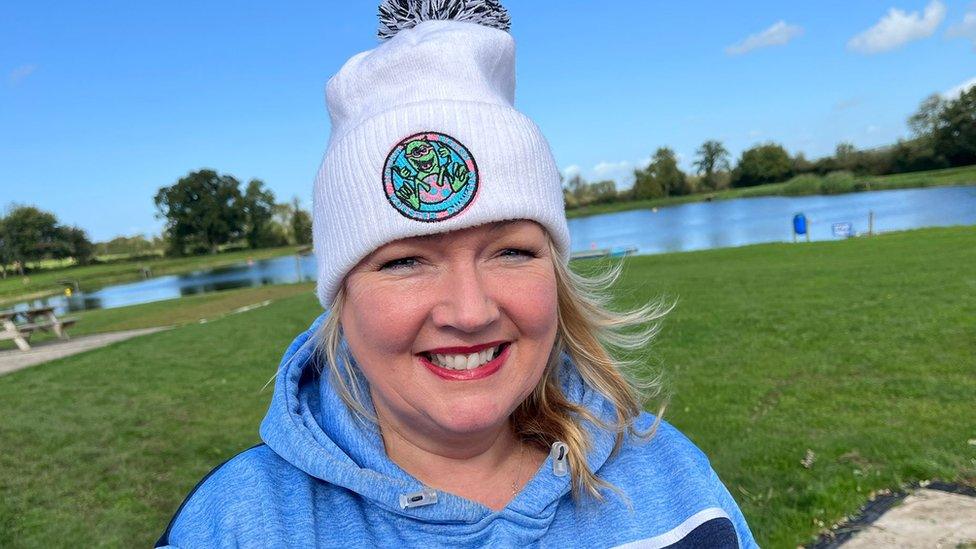
Louise Mahaffy says she is keen to see the lough return to normal
Louise Mahaffy lives near the lough.
"I feel so sad. I go down every day, to check it to see how it's doing," she said.
Another regular swimmer, Siobhan Keegan, says the cold water helps her cope with chronic pain.
"I feel very, very strongly about how Lough Neagh is suffering," she said.
"Everyone needs to unite in a common cause and save it before it's too late."
Even if the warnings against swimming are lifted during the winter, the threat remains of algal blooms returning.
Daera has urged the public to report any sightings on an app called Bloomin' Algae, external.
The department has more information on its website, external.
It stresses the danger posed by blue-green algae, adding it "can harm people, producing rashes after skin contact and illnesses if swallowed, or can potentially kill wild animals, livestock and pets if ingested".
Swimmers who can longer go to Lough Neagh are travelling as far as Donaghadee, Newcastle, and Camlough lake in south Armagh to find alternative places to bathe.
Related topics
- Published4 October 2023
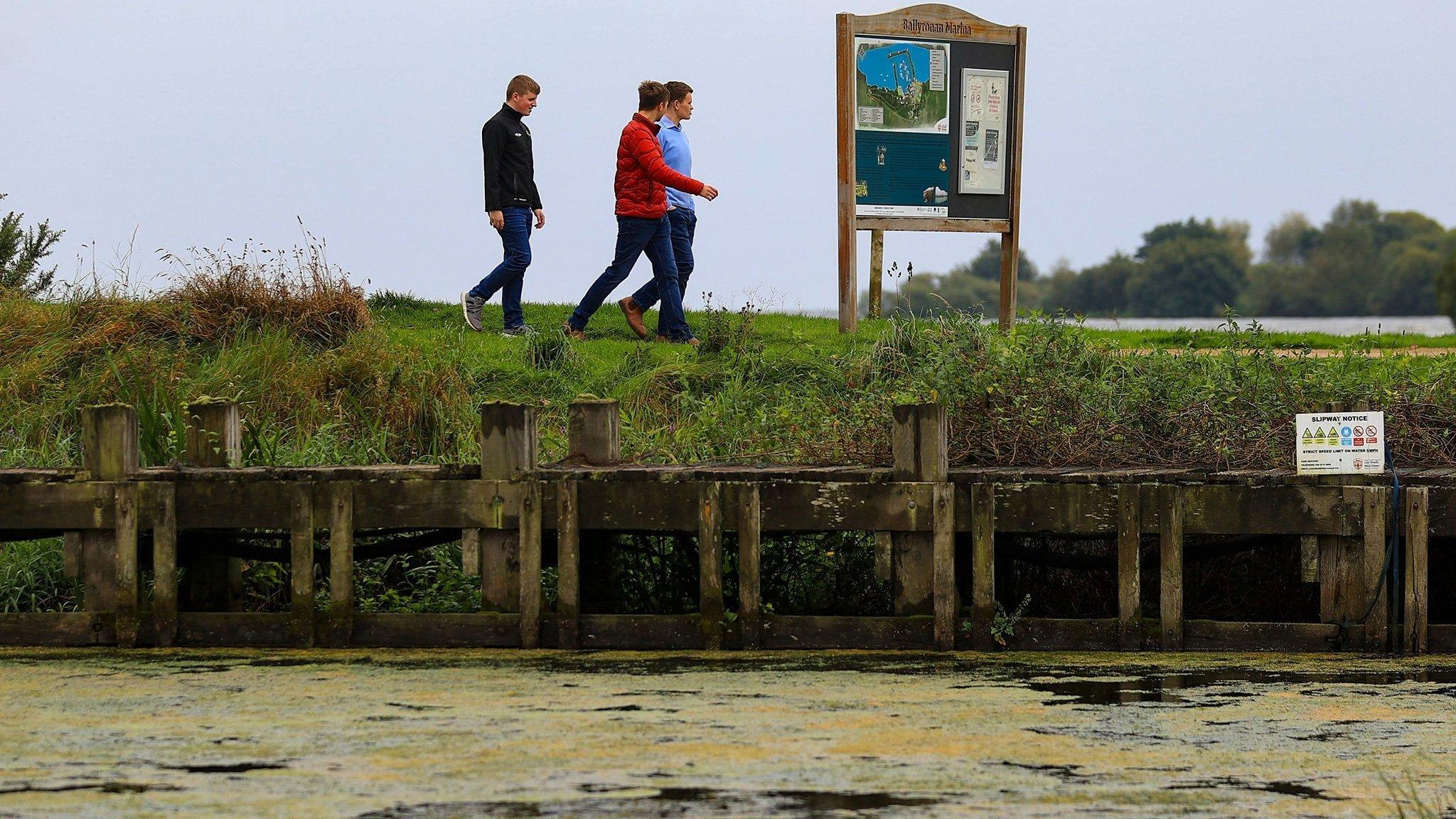
- Published23 September 2023
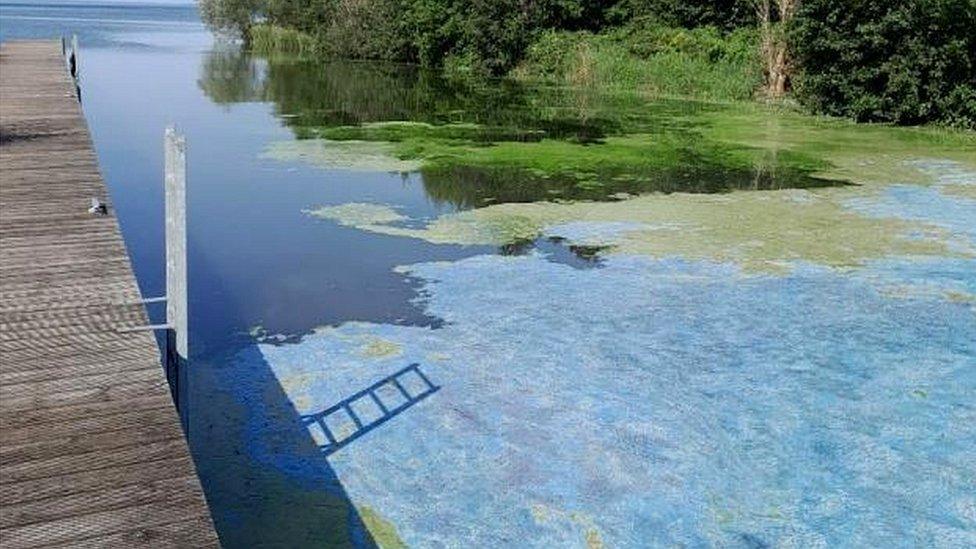
- Published3 October 2023
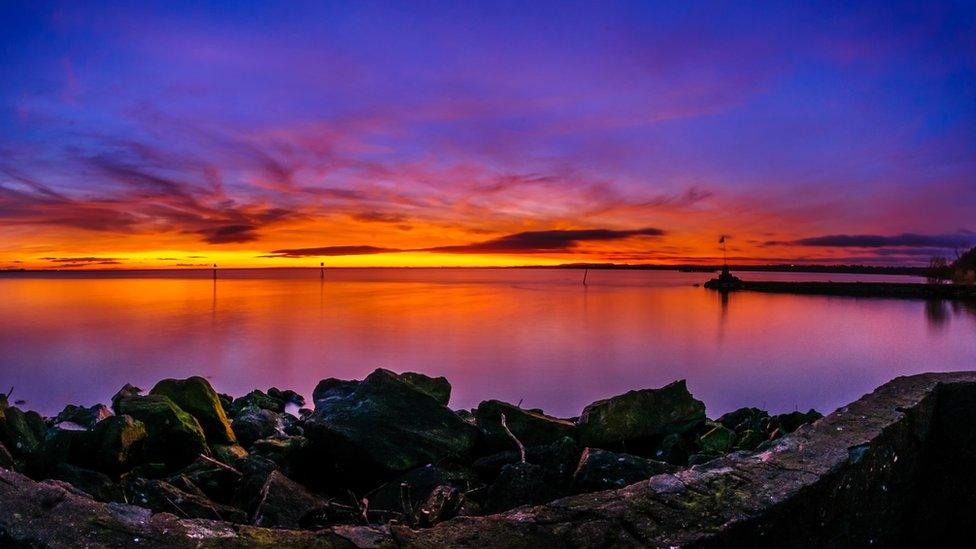
- Published6 July 2023
